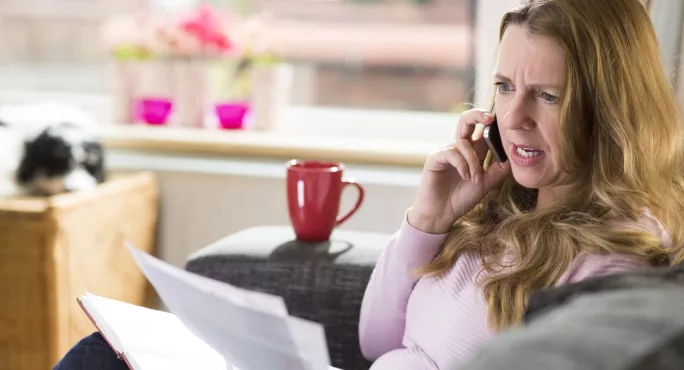Would we ask amateurs to surveil GPs? So why teachers?

Parents have always wanted to be able to see what’s going on in the classroom. And now not only can they do that but the education secretary has actively encouraged them to report their children’s school to Ofsted if they don’t feel that the online learning on offer is good enough.
Standing in the House of Commons yesterday, Gavin Williamson said that GCSEs and A levels would be graded by teacher assessment because he trusts teachers’ judgements.
But, in the same breath that he said “yes, we trust teachers”, he also said “we’re going to ask parents to report you if you’re not up to scratch”. So that trust is contingent on what the government hears. If there was genuine trust, that need for surveillance wouldn’t exist.
To me, this feels like a point we’ve been progressing towards for a while now. Parents have always wanted to know what’s going on in the classroom. Waiting at the school gates, they might swap stories about things teachers have done. Books sent home can be checked for teacher feedback. Some schools do invite parents in to watch a model lesson but, of course, that’s staged - teachers get a chance to prepare and put on their best show.
And parents already have the power to report schools: through Parent View, Ofsted effectively asks parents to inform on schools. Technically, parents can even prompt an Ofsted visit, if enough of them gang together and create cause for concern.
Coronavirus: Making judgements with no sense of context
This kind of desire for surveillance is driven by a sense of risk. There’s the risk that your child might not achieve as much as the next child. Then there’s the risk that your child might not get into as good a secondary school as the next child, and then as good a university.
But the danger now is that parents are going to make judgements about the quality of what they’re seeing without any sense of context or of what’s actually going on in schools.
Sunday morning: the prime minister says that schools are safe. At that point, headteachers had spent most of their holidays preparing for mass testing. And then, Monday afternoon, they immediately have to change all their plans and implement online learning.
And now, two days after that, the education secretary is inviting and encouraging parents to report to Ofsted any practice they’re not happy with. That’s like a new school opening and Ofsted going in to inspect it during their first week.
Most parents have no idea what a good lesson looks like. I’m a professor of education and I have no idea what a good phonics lesson should look like.
They also have no sense of context. You find parents trying to compare a school in an area of high social deprivation with what’s going on in private schools. For example, they’ll say: “Eton is giving six hours a day of totally live lessons, but my school isn’t.”
Sharing and comparing on Facebook
And parents can now record online sessions and share them with other parents. Education becomes shared and compared on Facebook the same way as holiday pictures. Then they can discuss it: “Mine’s doing this - why isn’t yours getting it, too?” It’s a form of social sorting: let’s sort the good from the bad, the ‘outstanding‘ from the ‘requires Improvement’.
And they can look at online timetables and ask whether a given activity is, in fact, an hour’s worth of work. Will their child actually achieve the three to five hours of work that schools are required to give?
But teachers are the best placed to understand how to work within their own contexts. Parents don’t have the necessary understanding.
I think it’s important to note that the majority of parents are very supportive of their schools. But this is the kind of thing that has the potential to sow division between parents and schools. It undermines parental trust.
Essentially, the suggestion is that something is wrong with what our schools are providing online, and that it’s parents’ job to surveil it and check the quality. And that’s not good for the relationship between parents and schools.
I think Ofsted will either be so inundated with complaints that the government will have to back-track or they’ll be forced to look at complaints in clusters. So, if 25 per cent of parents complain, they might investigate it, but not if 10 per cent complain. But where do you draw the line?
Vigilance in education is the preserve of Ofsted. This new measure simply invites in the amateurs. In what other field would we do this: a GPs’ surgery? A&E? The legal profession?
GPs have been providing online consultations but no one has suggested that, if you have concerns about the quality of your appointment, you should go ahead and report your GP. It just wouldn’t happen in any other profession except education.
Professor Damien Page is dean of the Carnegie School of Education at Leeds Beckett University
You need a Tes subscription to read this article
Subscribe now to read this article and get other subscriber-only content:
- Unlimited access to all Tes magazine content
- Exclusive subscriber-only stories
- Award-winning email newsletters
Already a subscriber? Log in
You need a subscription to read this article
Subscribe now to read this article and get other subscriber-only content, including:
- Unlimited access to all Tes magazine content
- Exclusive subscriber-only stories
- Award-winning email newsletters